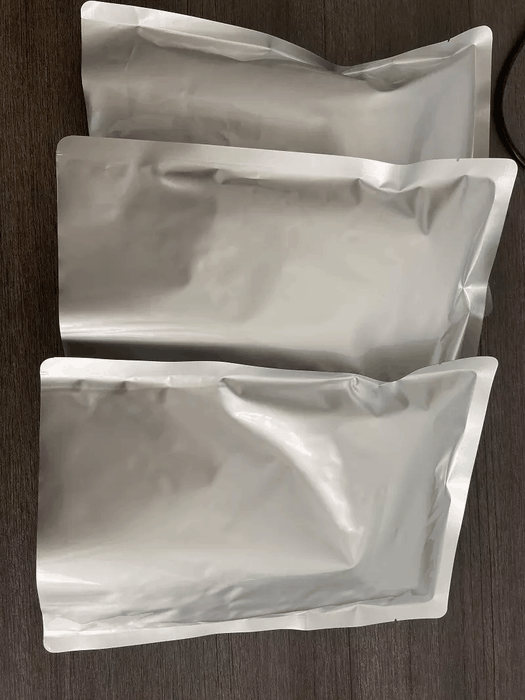Aviptadil
Synonym(s):Vasoactive Intestinal Peptide, Human, Porcine, and Rat - CAS 40077-57-4 - Calbiochem;VIP
- CAS NO.:40077-57-4
- Empirical Formula: C147H238N44O42S
- Molecular Weight: 3325.8
- MDL number: MFCD00167535
- EINECS: 200-001-8
- SAFETY DATA SHEET (SDS)
- Update Date: 2024-11-04 13:44:46

What is Aviptadil?
The Uses of Aviptadil
Pulmonary hypertension;Erectile dysfunction
The Uses of Aviptadil
Vasoactive Intestinal Peptide human, porcine, rat has been used as an immunogen to analyze the immunohistochemical reactions. It has also been used in cell migration assay.
General Description
Vasoactive intestinal peptide (VIP) is widely distributed inthe body and is believed to occur throughout the gastrointestinaltract. It is a 28-residue polypeptide with structuralsimilarities to secretin and glucagon. It causes vasodilatationand increases cardiac contractibility. VIP stimulates bicarbonatesecretion, relaxes gastrointestinal and othersmooth muscles, stimulates glycogenesis, inhibits gastricacid secretion, and stimulates insulin secretion. Its hormonaland neurotransmitter role has been investigated.
Biochem/physiol Actions
VIP (Vasoactive intestinal peptide) possesses anti-inflammatory and immunomodulatory functions. It controls the pathogenesis of rheumatoid arthritis. It is also involved in neuroblastoma differentiation, and pancreatic insulin secretion. Vip exhibits its function through G-protein coupled receptors. Some of the other important actions of VIP is associated with the digestive, respiratory, cardiovascular and reproductive systems.
Clinical Use
28-peptide that is structurally related to secretin and glucagon. It has a diverse biological actions. It has orphan drug status for the treatment of acute esophageal food impaction.
Clinical Use
Several clinical trials have been reported regarding the use of VIP or its analog for asthma and sarcoidosis. In an open clinical Phase II study, patients with histologically proven sarcoidosis and active disease were treated with nebulized VIP. VIP inhalation was safe and well tolerated, and significantly reduced the production of tumor necrosis factor-α by cells isolated from the bronchoalveolar lavage fluids of these patients.
storage
Store at -20°C
Properties of Aviptadil
| Density | 1.47±0.1 g/cm3(Predicted) |
| storage temp. | −20°C |
| solubility | 1% acetic acid: soluble 0.1%, clear, colorless |
| form | powder |
| color | White to off-white |
| Water Solubility | Soluble to 1 mg/ml in water |
Safety information for Aviptadil
Computed Descriptors for Aviptadil
| InChIKey | HEOYHMUESMJFDC-RIWXPGAOSA-N |
Aviptadil manufacturer
Biophore India Pharmaceuticals Pvt Ltd
New Products
4-Fluorophenylacetic acid 4-Methylphenylacetic acid N-Boc-D-alaninol N-BOC-D/L-ALANINOL Tert-butyl bis(2-chloroethyl)carbamate 3-Morpholino-1-(4-nitrophenyl)-5,6-dihydropyridin- 2(1H)-one Furan-2,5-Dicarboxylic Acid Tropic acid S-2-CHLORO PROPIONIC ACID ETHYL ISOCYANOACETATE 2-Bromo-1,3-Bis(Dimethylamino)Trimethinium Hexafluorophosphate (6-METHYL-[1,3]DITHIOLO[4,5-b]QUINOXALIN-2-ONE INDAZOLE-3-CARBOXYLIC ACID 4-IODO BENZOIC ACID (2-Hydroxyphenyl)acetonitrile 4-Bromopyrazole 5,6-Dimethoxyindanone 2-(Cyanocyclohexyl)acetic acid 4-methoxy-3,5-dinitropyridine 2-aminopropyl benzoate hydrochloride 1-(4-(aminomethyl)benzyl)urea hydrochloride diethyl 2-(2-((tertbutoxycarbonyl)amino) ethyl)malonate tert-butyl 4- (ureidomethyl)benzylcarbamate Ethyl-2-chloro((4-methoxyphenyl)hydrazono)acetateRelated products of tetrahydrofuran








You may like
-
 40077-57-4 Aviptadil 98%View Details
40077-57-4 Aviptadil 98%View Details
40077-57-4 -
 Vasoactive Intestinal Peptide CAS 40077-57-4View Details
Vasoactive Intestinal Peptide CAS 40077-57-4View Details
40077-57-4 -
 Vasoactive Intestinal Peptide, Human, Porcine, and Rat CAS 40077-57-4View Details
Vasoactive Intestinal Peptide, Human, Porcine, and Rat CAS 40077-57-4View Details
40077-57-4 -
 1975-50-4 98%View Details
1975-50-4 98%View Details
1975-50-4 -
 2-HYDROXY BENZYL ALCOHOL 98%View Details
2-HYDROXY BENZYL ALCOHOL 98%View Details
90-01-7 -
 2-Chloro-1,3-Bis(Dimethylamino)Trimethinium Hexafluorophosphate 221615-75-4 98%View Details
2-Chloro-1,3-Bis(Dimethylamino)Trimethinium Hexafluorophosphate 221615-75-4 98%View Details
221615-75-4 -
 14714-50-2 (2-Hydroxyphenyl)acetonitrile 98+View Details
14714-50-2 (2-Hydroxyphenyl)acetonitrile 98+View Details
14714-50-2 -
 118753-70-1 98+View Details
118753-70-1 98+View Details
118753-70-1